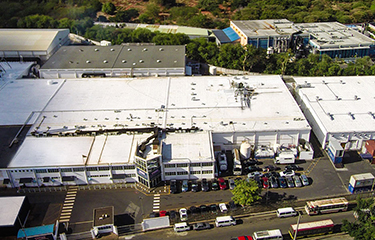Mauritius recently teamed up with fellow Indian Ocean Tuna Commission (IOTC) members to successfully oppose a periodic ban on drifting fish aggregating devices (dFADs) the country said threatened the East African country’s tuna-processing output.
The resolution, adopted during the Sixth Special Session of the IOTC in February, proposed a ban on dFAD use for 72 days each year between 1 July and 11 September. THe resolution aimed to support ongoing efforts to rebuild overfished bigeye and yellowfin tuna stocks within the IOTC’s jurisdiction.
Mauritius joined at least 10 other IOTC members to oppose the resolution. The country, among other nations, stated that the resolution was flawed, as no scientific data specifically supported the period and duration of closures outlined in the resolution.
The IOTC confirmed on 8 August that the proposal will no longer be binding after at least one-third of the Commission’s membership opposed it.
Mauritius especially said it was dreading the possibility of banning the equipment that E.U. fishing vessels, which supply Mauritius’s tuna-processing factories, rely on.
Veer Singh Boodhna, the permanent secretary in Mauritius’s Ministry of Blue Economy, Marine Resources, Fisheries, and Shipping, said on 22 July that limiting the use of dFADs would “hinder the smooth and continuous supply of raw materials to local canneries and result in severe losses in revenue to developing coastal states, including small islands … [that] rely heavily on the purse seine fishery.”
The E.U. – another IOTC member that argued against the provisions in the resolution – echoed Boodhna, stating that the proposals were “either practically not implementable or, if implemented, would result in a disproportionate burden on the purse seine fleets operating in the area without any specific scientific advice to support them.”
The IOTC, in pushing for a review on the rejected proposal, is likely to consider the E.U.’s concerns that there is a worrying precedent emerging in which “crucial management decision[s] [are] taken without exhausting all efforts to reach a consensus and with expressed opposition of all the IOTC members fishing on dFADs.”
The E.U. has also questioned the motive for some IOTC members to embrace the compulsory closure of dFADs, but exclude anchored FADs (aFADs) – the function and impact of which are very similar to dFADs ...
Photo courtesy of Prince Tuna Mauritius








